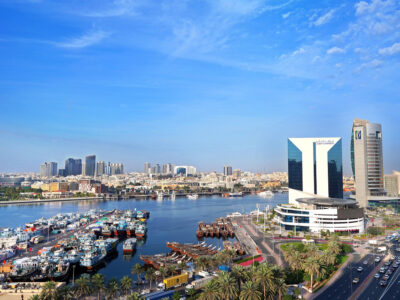The UK has set out a new Industrial Strategy aimed at driving investment into sectors expected to define the next decade of global growth. Launched in mid-2025, the 10-year plan focuses on creating a more agile, investor-ready economy, one that plays to the UK’s sectoral strengths and mirrors the ambitions of fast-evolving Gulf markets.
The strategy is designed to simplify how companies invest and operate in the UK, offering the stability needed for long-term growth.
Eight sectors form the core of the plan: clean energy, advanced manufacturing, digital and technologies, life sciences, defence, financial services, creative industries, and professional and business services. Each has a dedicated transformation roadmap developed in consultation with industry and international partners.
Electricity cost reductions of up to 25% for over 7,000 manufacturers will come into effect from 2027. A new ‘Connections Accelerator’ will reduce grid connection delays, while planning reforms are intended to cut infrastructure project timelines. The British Business Bank’s lending capacity has expanded to £25.6 billion, including £4 billion allocated to growth sectors.

In clean energy, the UK is targeting over £30 billion in annual investment by 2035. The offshore wind sector alone contributed £2.4 billion in exports in 2022 and continues to attract overseas capital—including a recent $6 billion investment by UAE-based Masdar in the East Anglia THREE wind project. Manufacturing reforms focus on electric vehicles, aerospace systems, and battery supply chains, where the UK already hosts globally active firms.
To accelerate innovation, the government has committed £86 billion to R&D investment, targeted towards the eight priority sectors. This funding is intended to stimulate private investment in applied research and advanced technologies with commercial potential.
“The UK has welcomed Gulf investment across a multitude of sectors, including in UK infrastructure, clean energy and technology. We have signed investment partnerships with the majority of GCC nations,” said Sarah Mooney, HM Trade Commissioner for the Middle East and Pakistan. “Our modern Industrial Strategy is about providing the clarity and commitment to deepen that engagement even further over the next decade.”
The UK continues to focus on long-term stability, regulatory clarity, and innovation — priorities that align closely with what international investors look for, creating space for deeper commercial collaboration.
The UK is also positioning itself as a base for scaling science, clean tech and digital innovation. Over £44 billion has been invested into UK AI companies since mid-2024, while the life sciences sector contributes more than £100 billion in turnover annually. With strong research institutions and a growing commercial pipeline, the UK aims to attract sovereign wealth funds and regional venture platforms seeking exposure to globally competitive innovation hubs.
The plan also includes a 25% reduction in regulatory costs, simplified approvals, and new funding for strategic sites. To address workforce gaps, £1.2 billion per year is committed to skills, and a new Global Talent Taskforce will support specialist recruitment in high-demand sectors like AI and engineering.
The UK’s Investment Gateway: Streamlining Gulf-UK Growth
The UK’s Office for Investment (OfI) will be instrumental in making this strategy a reality—particularly for Gulf-based investors. With a more robust presence in the region, the OfI offers a first-class concierge service to ensure that investment into the UK is smooth, fast, and attractive. Backed jointly by HM Treasury, the Department for Business and Trade, and No10 Downing St, the Office has been significantly bolstered to provide strategic investors with rapid troubleshooting support for issues around grid connections, planning, sites, or skills.

The Office also acts as a single gateway for Gulf sovereign and institutional investors seeking structured, de-risked entry points into complex projects. Whether the opportunity involves advanced hydrogen hubs, innovation clusters, or regeneration zones, the OfI works across government and with local authorities to ensure tailored investor engagement and co-creation of scalable ventures.
It enables clearer decision-making and alignment on government priorities, while helping to structure investment opportunities in partnership with public financial institutions, regional leaders, and private-sector stakeholders.
Throughout, the Industrial Strategy is built to make investing and operating in the UK simpler, faster, and more predictable, empowering long-term decisions.
The UK government is tracking progress of the Industrial Strategy through key metrics, including business investment, Gross Value Added (GVA), employment and wage outcomes, productivity growth, and exports. The Industrial Strategy and its Sector Plans are underpinned by a robust monitoring and evaluation framework to ensure transparency and long-term impact.
Oversight will be led by the Industrial Strategy Advisory Council, chaired by Microsoft’s Clare Barclay and including senior leaders from Rolls-Royce Holdings, McKinsey, and the LSE. The council will monitor delivery and ensure the strategy remains responsive to global shifts.
A Long-Term Vision, Shared with the Gulf
The GCC’s own diversification strategies share common ground with the UK’s sectoral priorities – particularly in clean energy, industrial transformation and digital infrastructure. With investment agreements already in place across the region, the UK’s approach signals a clear interest in building long-term, commercially grounded partnerships.
To explore opportunities, visit business.gov.uk/gcc







